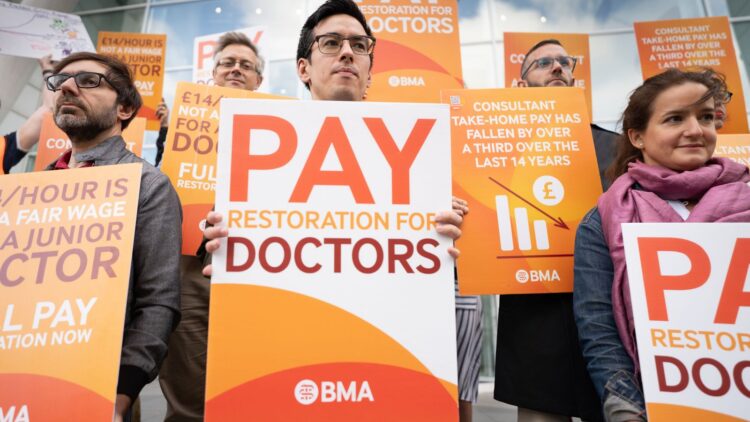By Charlotte Webster-
Family doctors across England are contemplating their next steps after an “overwhelming” majority of general practitioners (GPs) voted against proposed changes to their contract, expressing frustration and concern over the implications for patient care.
In a referendum organized by the British Medical Association (BMA), more than 19,000 GPs and GP registrars participated, with an astonishing 99% voting “no” to accept the new contract for GP services.
The rejection reflects widespread discontent among GPs, who feel “frustrated, angry, and upset” at the planned changes.
Earlier reports had hinted at potential GP industrial action this winter, with the BMA outlining a timeline in response to concerns over the contract changes set to come into force on April 1.
One of the key points of contention revolves around the proposed 1.9% baseline practice contract funding uplift, which the BMA argues falls well below inflation and could jeopardize the financial viability of many practices, potentially leading to closures.
Dr. Katie Bramall-Stainer, chair of the BMA’s General Practitioners Committee for England, expressed the depth of sentiment within the profession, stating, “In 20 years, I’ve never known GPs to be so frustrated, angry, and upset. We are unable to offer our patients the care they want and need.”
The BMA reported a significant increase in membership, with 2,400 more GPs joining the union since February, indicating widespread concern among the profession.
The rejection of the contract changes signals the beginning of a concerted effort by GPs to push back against what they perceive as detrimental alterations to their working conditions and patient care. The GPC England is set to convene to deliberate on the profession’s next steps, emboldened by the resounding support shown in the referendum.
Responding to the vote outcome, a spokesperson for the Department of Health and Social Care emphasized the government’s commitment to valuing the work of GPs and streamlining bureaucracy to enable GPs to spend more time with patients.
However, they expressed disappointment at the rejection of the contract, noting that further pay uplifts may be considered in response to the independent Review Body on Doctors’ and Dentists’ Remuneration.




